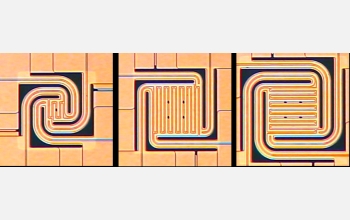|

Press Release 07-097
National Science Board Approves NSF Plan to Emphasize Transformative Research

August 9, 2007
The National Science Board (Board) has unanimously approved a motion by National Science Foundation (NSF) Director Arden L. Bement, Jr. to enhance support of transformative research at the NSF. Additionally, Bement proposed -- and the Board adopted -- a change to the intellectual merit review criterion to specifically include evaluation of proposals for potentially transformative concepts. Both actions were taken at the Board's August 6-8, 2007 meeting, at the NSF in Arlington, VA.
The Board approved a change in NSF Merit Review Criteria I from the NSF Grant Proposal Guide http://www.nsf.gov/publications/pub_summ.jsp?ods_key=gpg to specifically include review of the extent to which a proposal also suggests and explores potentially transformative concepts. The change in the intellectual merit section of the NSF Grant Proposal Guide would add "potentially transformative research" language: "To what extent does the proposed activity suggest and explore creative, original, or potentially transformative concepts?"
During its last meeting in May, the Board issued a report, Enhancing Support of Transformative Research at the National Science Foundation, that included a recommendation that NSF "develop a distinct, Foundation-wide Transformative Research Initiative." The Board defined transformative research as "research that has the capacity to revolutionize existing fields, create new subfields, cause paradigm shifts, support discovery, and lead to radically new technologies."
In response, Bement proposed a three-pronged strategy to the Board's Task Force on Transformative Research. Under Bement's plan, the NSF will:
- Infuse support of potentially transformative research throughout NSF and all of its programs;
- Learn how to facilitate potentially transformative research; and
- Lead the community through opportunities for potentially transformative research proposal submissions.
Bement highlighted that much can be done with improved communication and existing award mechanisms to infuse the concept of potentially transformative research across the Foundation. He highlighted the importance of learning from small scale pilots and from community feedback. For example, the results of a recent survey revealed that while the majority of respondents (proposers) perceive that NSF already welcomes transformative research, and while NSF was strongly preferred over other funding sources as the place to submit a transformative idea, there is room for improvement.
To lead the community, Bement will charge an NSF working group to develop the framework and recommend implementation details for a new funding mechanism for "early-concept" research projects, including a mechanism to monitor and track the impact. NSF will broadly advertise the new funding mechanism to the community once it has been finalized.
-NSF-

Media Contacts
Lisa-Joy Zgorski, NSF (703) 292-8311 lisajoy@nsf.gov
Related Websites
National Science Board: http://www.nsf.gov/nsb
Enhancing Support of Transformative Research at the National Science Foundation: http://www.nsf.gov/nsb/documents/2007/tr_report.pdf
Impact of Proposal and Award Management Mechanisms Working Group (IPAMM) - 2007 Proposer Survey: http://nsf.gov/od/ipamm/ipamm_2007survey.jsp

The National Science Foundation (NSF) is an independent federal agency that supports fundamental research and education across all fields of science and engineering. In fiscal year (FY) 2009, its budget is $9.5 billion, which includes $3.0 billion provided through the American Recovery and Reinvestment Act. NSF funds reach all 50 states through grants to over 1,900 universities and institutions. Each year, NSF receives about 44,400 competitive requests for funding, and makes over 11,500 new funding awards. NSF also awards over $400 million in professional and service contracts yearly.
 Get News Updates by Email Get News Updates by Email
Useful NSF Web Sites:
NSF Home Page: http://www.nsf.gov
NSF News: http://www.nsf.gov/news/
For the News Media: http://www.nsf.gov/news/newsroom.jsp
Science and Engineering Statistics: http://www.nsf.gov/statistics/
Awards Searches: http://www.nsf.gov/awardsearch/
| 



